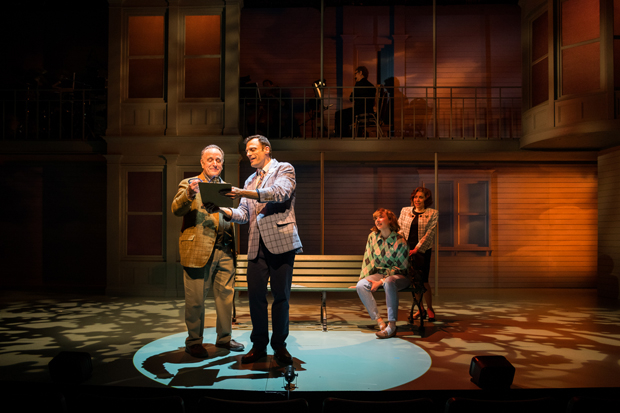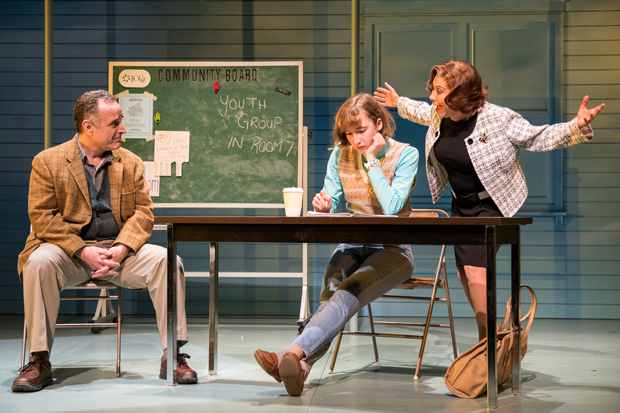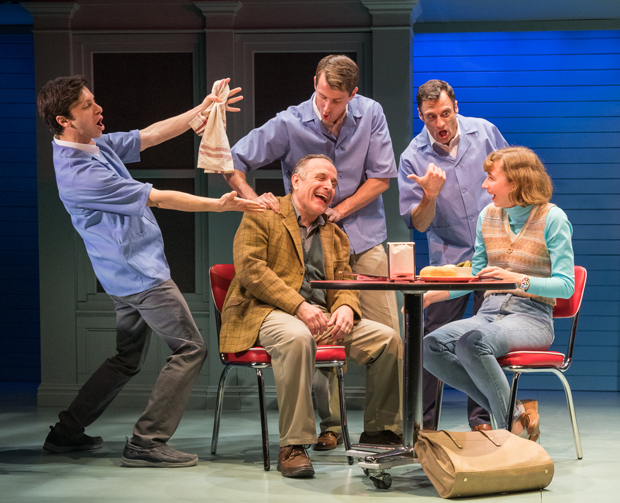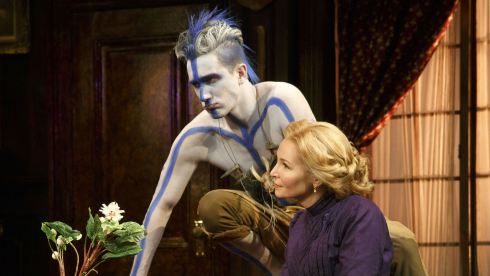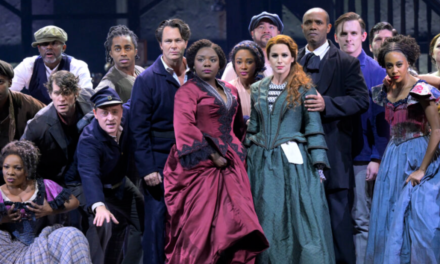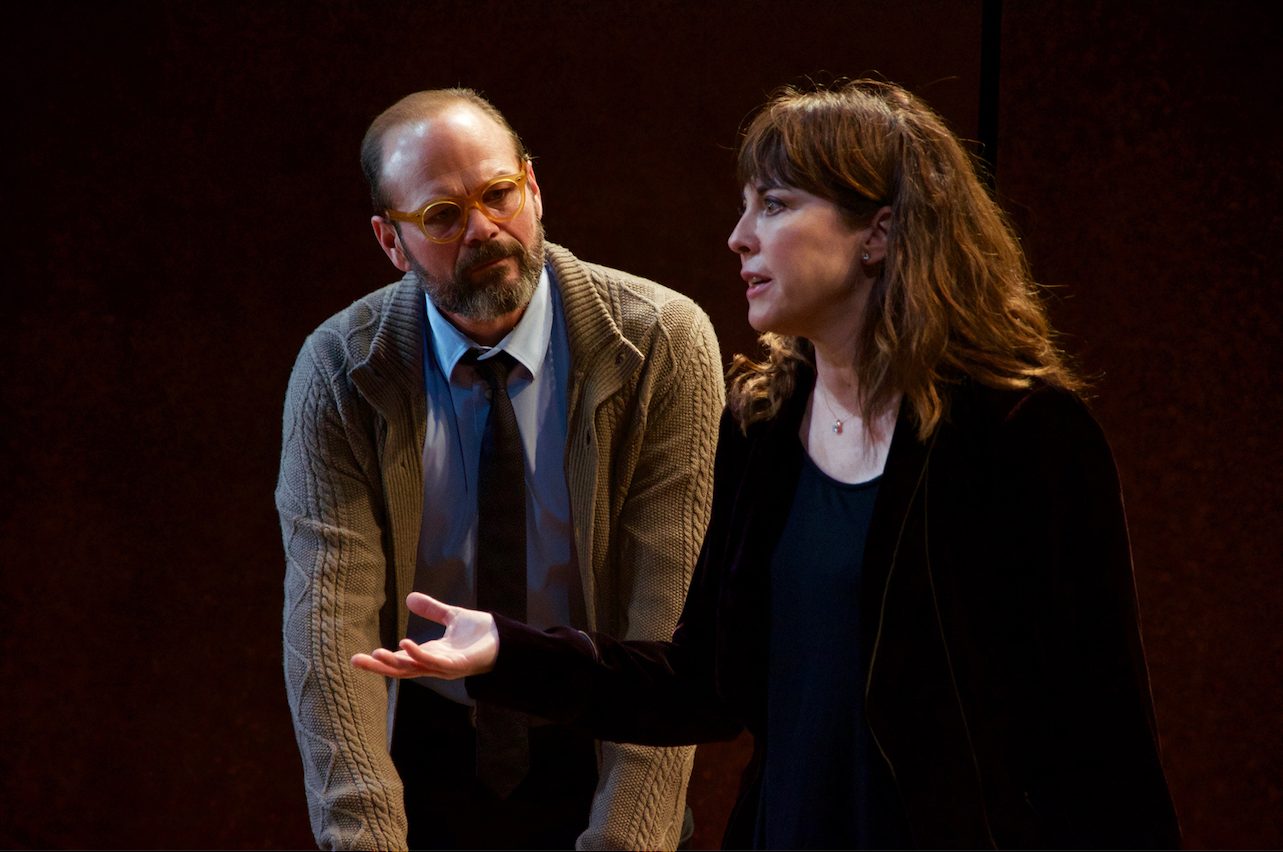by Carole Di Tosti
Harvey Milk needs no introduction.As the first openly gay political official (Board Supervisor) in San Francisco, Milk bravely took a stand for the LGBT community and became a popular political activist because of his humor, his honesty, his human decency. When he was gunned down, in an act that he believed would happen, thirty thousand individuals lit candles and marched to memorialize his efforts. As a symbol throughout the musical, (which itself is an encomium to what Milk stood for), this is crucial for us today.
In A Letter to Harvey Milk, The Musical, lyrics by Ellen M. Schwartz, additional lyrics Cheryl Stern, music by Laura I. Kramer and book by Ellen M. Schwartz, Cheryl Stern, Laura I. Kramer and Jerry James, we receive glimpses of how Harvey Milk influenced LGBT future generations toward integration into the social fabric. Based on the short story of the same name by Lesléa Newman, the play thematically encourages all individuals to stem divisive perspectives through interaction. This theme is paramount in the current tide of political rancor and social media predominance over personal, face-to-face communication.
The musical’s setting, 1986 San Francisco seems quaint. However, the interactions the characters forge signify healthful communication and community. Their slower, easier relationships (Harry and teacher Barbara) remind us of what we must embrace. A wonderful line in a fine song, underscores this. It highlights that when we hold each other’s hands in friendship, we cannot hold guns, because we have no room nor place in our hearts to kill (“Turning the Tables”). This theme pertains throughout the production and becomes the driving force of the action.
Harry Weinberg (a mediated, exceptional performance by Adam Heller), whose wife Frannie has recently passed, has disturbing dreams of the shooting death of Harvey Milk (Michael Bartoli). Frannie (Cheryl Stern’s humor and sensitivity make the character pop to life), and Harry’s loving relationship extends into active conversations with her in his mind. The songs they share, as they argue, wrangle and profess their long-standing love and are touching and poignant. Frannie counsels Harry not to be so involved with his writing teacher or reveal secrets to her. Through a series of well integrated flashbacks we discover Harry’s nightmare relates to his friendship with Harvey. Yet it is a clue to repressed memories from Harry’s past which we discover by the end.
The course of sessions with teacher Barbara (the lyrically voiced Julia Knitel gives a heartfelt performance as a young, gay woman) lead Harry to write a letter to Harvey Milk. This opens a bridge of communication between the fatherly Harry and the young woman. They become friendly. Harry brings her to a Jewish deli which reconnects her to her own Jewish identity. The two discuss their personal lives and issues with family members. All the while, Frannie humorously kvetches and shadows Harry.
Barbara recounts her failed love relationship with another woman (Aury Krebs). The beautifully performed “Love is a Woman” (by Krebs and Knitel) encapsulates the emotional spark then diffusion of their relationship. When Barbara insists that Milk’s openly gay stance is something that all LGBT individuals should uplift, Harry and Barbara’s disagreement explodes into argument. They have a falling out over a loaded symbol Barbara wears. However, the bonds they’ve forged between them are too strong. They reconcile and finally Harry reveals the truth of why he has written to Harvey Milk and why the nightmare has haunted him.
The production, with music direction by Jeffrey Lodin and direction by Evan Pappas, deservedly has found its place Off Broadway. Special kudos to the ensemble cast, musicians, design team. For purists who are expecting less recitative, I found the tuneful songs provide the emotional counterpoint necessary. Indeed, they layer depth and prepare us for the profound revelations which occur at the end. All the prior scenes and songs intricately build up to these moments.
This seemingly light-hearted, comedic musical is filled with conflict. It is subterranean, internal. Themes are revealed through inference, through complex characterization. The tie in with Harry’s past and Harvey’s shooting death is monumental. It appears and disappears like a ghost. It is a tragically painful remembrance. Considering our current times reflected in Charlottesville, Virginia’s chanting marchers’ Nazi reference to “Blood and Soil?” Shame on us if we don’t join Milk as activists against all discrimination.
Photos: Russ Rowland
A Letter to Harvey Milk runs 95 minutes with no intermission at The Acorn Theatre (410 W 42nd). You may purchase tickets online at https://www.telecharge.com/Off-Broadway/A-Letter-to-Harvey-Milk/Overview. Or call 212-239-6200 Extended thru June 30


